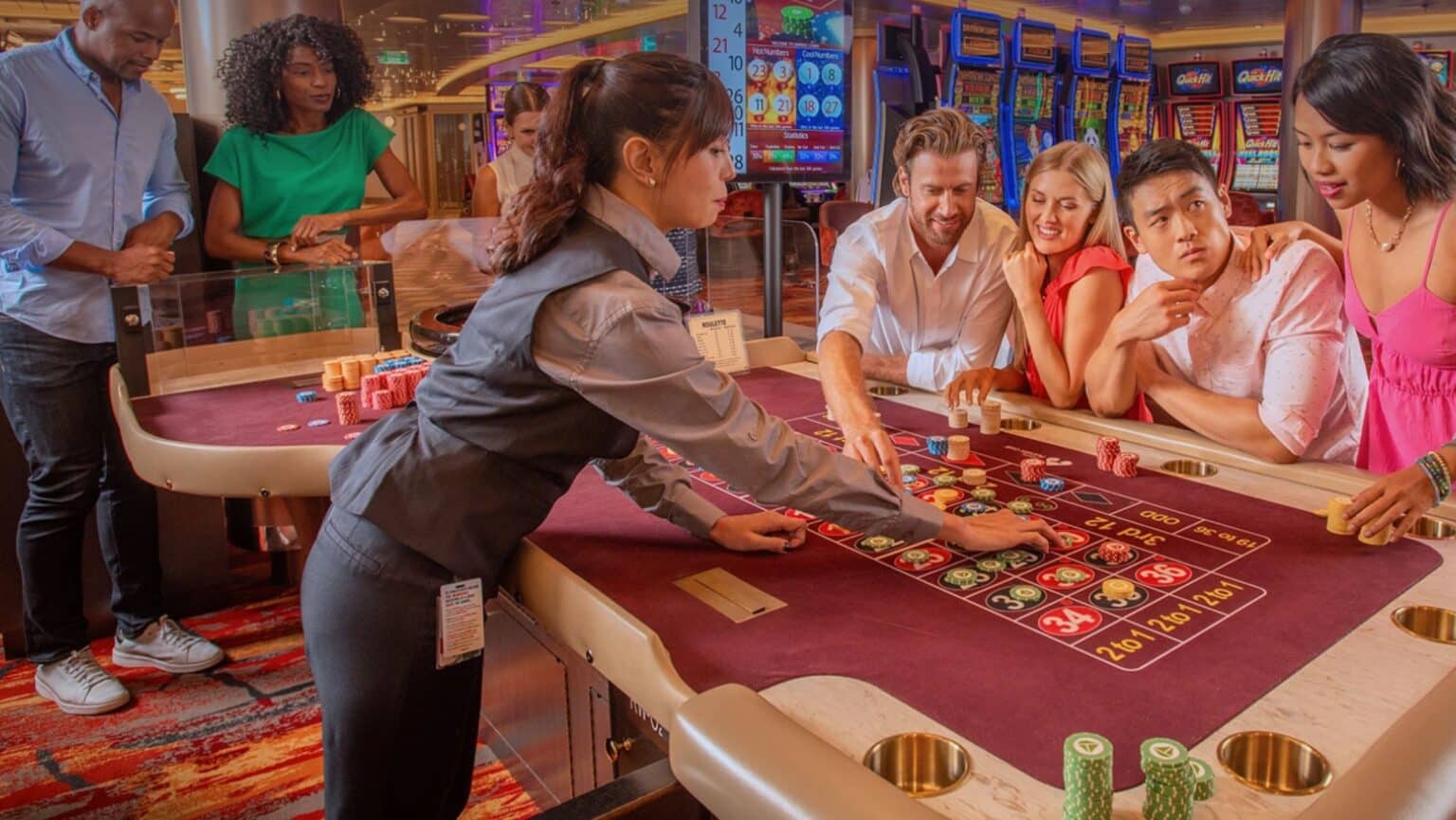- A cruise passenger in the Caribbean threw himself off a cruise ship to try and escape gambling debts of $24,000 in the cruise ship casino.
- There are several similar cases in Australia, some of which ended tragically.
- Is it time that cruise ship casinos operating out of Australia should face stricter regulations?
A passenger on a Caribbean cruise has jumped over the side of Rhapsody of the Seas after accumulating USD$16,000 (approx AUD$24000) in gambling debt.
Authorities reported that the passenger was attempting to avoid paying the massive gambling debts that he had accrued.
However, Jey Gonzalez-Diaz, the man in the question, was swiftly rescued by two people nearby on jet skis, who pulled him onto their vehicles and took him to shore, where he was promptly arrested.
It isn’t yet known from which deck Gonzalez-Diaz jumped.
Cruise ship casinos have been facing increasing scrutiny over recent years. Cruise ships heavily promote their casinos and incentive customers to spend as much as possible, as any casino would. However, some people draw issue with the fact that cruise ship casinos operate under less regulations than casinos on land, given that generally fly under the flag of a country with that vastly different laws than Australia, and operate in international waters.
This not only allows cruise lines to potentially undertake activities that could be illegal or in legal grey areas in Australia, but also makes it harder to seek any legal recourse if a passenger does believe that a law has been broken or that they have been taken advantage of.
This can lead to extreme cases, such as the case of Aaron. Aaron boarded a P&O Australia cruise ship while mourning the loss of a relative, and left with more than $30,000 in gambling debts after the 10-day cruise.
He alleges being given a casino drinks card for up to 15 free drinks a day and being so drunk that he was breaking glasses, but he was never cut off from gambling more.
There was also the tragic case of Shane Dixon, an Aussie father of three who tragically took his own life after amassing huge gambling debts on a P&O Australia cruise.
In fact, Carter Capner Law has actually opened a class-action lawsuit against Carnival Corporation, alleging that they use predatory gambling practices against their customers.
The lawsuit contains reports from passenger who racked up debts of up to $25000, without any intervention from the cruise line.
Perhaps the most significant problem with cruise ship gambling practices is the difficulty in scrutinising them, legally or otherwise. While any casino will of course attempt to keep customers gambling, cruise lines are free to lure cruisers with free drinks, discounted or free cruises and employ whatever other tactics to keep cruisers gambling, and generally aren’t held to any consumer protection laws.

Why cruise ship casino practices are considered problematic
Peter Carter, who runs Carter Capner law, previously told the ABC, why he believes cruise ships casino practices need to be reigned in.
“Well, the point is that the cruise lines think that once they’re in international waters, everything goes, we have a different opinion and we think that there are still some regulations that need to be followed.
“Even the law of the United Kingdom or the law of Bermuda, wherever the ship is registered, will apply, and those laws are very favourable in terms of consumer protection.”
Carter says there a lack of regulations to limit this behaviour.
“Well, there are no regulations as such. The question is whether they should be permitted to allow gambling when people are heavily intoxicated, whether they should be given no questions asked loans just charged to their room account without any investigation. Is there the capacity to repay or any investigation as to whether they’re problem gambler?
“So those things we believe apply under the consumer protection laws of other countries. And the law that applies on the ship in international waters is the law of the state where the vessel is registered.”
Carter explains the use of free drinks or other tools to encourage gambling.
“Well, they go to the casino desk and they’ve asked, oh, would you like a loan? And they say, oh, how much? $5,000 a day, $2,000 a day, depending. We have people who’ve contacted us, who’ve racked up a debt of $13,000 without keeping track of it because the casino on the ship doesn’t do it for them and they’re distracted by the free drinks, the promises of the next cruise is free. So we think that’s all very poor conduct, and wouldn’t be tolerated in Australia.
“And our objective is to get compensation for those passengers who’ve been financially harmed as a result. And remember, it’s not just the passenger, it’s their family as well. So it’s serious conduct and they should be brought to account.”
Is casino activity on the rise?
Cruise lines, like any business are always looking to increase profitability. It appears one way they’ve found to do that is by increasing the amount of offers they give for free or heavily discounted cruises to cruise passengers that the lines know to be habit gamblers.
This has been increasing so significantly that travel agents who work with Royal Caribbean have been complaining that they are losing commissions, as the line increases the quantity of offers it gives out.
Agents report losing large numbers of clients who are now being offered casino comps and opting to no longer use the services of a travel agent.
While anyone is within their right to snap up a free or discounted cruise, the reality is that cruise lines only do this because they know they come out ahead, even further ahead than they would be selling a normal cruise fare.
Therefore, while some individuals might come out ahead, many others cruisers will lose money, even if they’re being tempted on board by what seem like unbelievably good deals.
We’ve also seen Carnival Cruise Line even offer adults-only cruises, that were initially specifically marketed towards casino users, as the cruise line looked to maximise the number of casino users on certain cruisers.
As cruise lines increase efforts towards getting more passengers into their casinos, it’s possible that these tragic and extreme cases could become more common.
With a lawsuit under the way and plenty of eyes on cruise ship practices, could a crackdown on cruise ship casino practices be on its way?
What do you think? Should cruise ship casinos face more regulation under Australian law?








